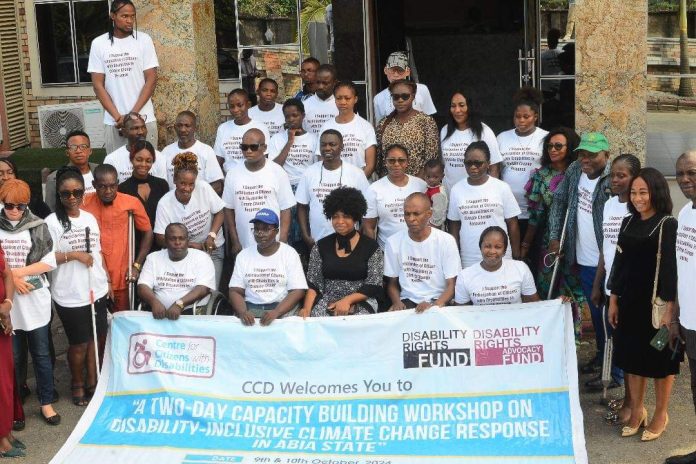In a significant step towards addressing the intersection of disability and climate change, the Centre for Citizens with Disabilities (CCD) recently organized a two-day capacity-building workshop aimed at empowering Persons with Disabilities (PWDs), Civil Society Organizations (CSOs), and government agencies to develop and implement disability-inclusive climate change strategies. The workshop, which took place on October 9th and 10th, 2024, in Abia State, brought together key stakeholders to explore the challenges and opportunities surrounding climate change resilience for the disabled community.
The event kicked off with an opening remark that lauded the Abia State Government for its commendable engagement and responsiveness to the program since its inception. The government’s cooperation, participants noted, has been vital in creating a foundation for inclusive governance and climate response strategies that consider the needs of marginalized communities, particularly PWDs.
A major highlight of the first day was the delivery of two key presentations by Mr. Damian Ivom, an expert in disability advocacy and climate change. His first presentation explored the critical intersectionality between disability and climate change, shedding light on how PWDs are disproportionately affected by environmental challenges. He explained that due to various barriers—such as physical, social, and economic—PWDs are often among the most vulnerable when climate-related disasters strike.
Mr. Ivom’s second presentation focused on the Designing and Implementation of Disability-Inclusive Climate Adaptation and Resilience Strategies, emphasizing the importance of creating comprehensive policies that consider the needs of PWDs in the face of climate change. He provided practical insights on how stakeholders can integrate disability inclusion into broader climate adaptation strategies. These sessions were pivotal in deepening participants’ understanding of how climate change impacts the disabled community and the roles that government, CSOs, and PWDs themselves can play in building climate resilience.
In attendance were representatives from key Abia State government ministries, including the Ministries of Health, Environment, and Budget and Planning. Each delivered goodwill messages, reflecting a strong commitment to integrating the lessons from the workshop into their respective programs, policies, and day-to-day operations. They underscored the need for cross-sector collaboration to address the climate crisis in ways that leave no one behind, particularly the disabled community.
The second day of the workshop built upon the discussions of the first day by delving deeper into how climate change specifically impacts PWDs and what mitigation and adaptation mechanisms can be adopted within Abia State. Dr. Chukwudum Queensley facilitated the sessions, stressing the importance of engaging PWDs not only as beneficiaries of climate resilience initiatives but also as active contributors and social innovators.
“Persons with Disabilities can be change-makers in society,” said Dr. Queensley, “Their lived experiences give them unique perspectives, which can inform more innovative and inclusive approaches to climate action. This is an opportunity for PWDs to contribute to a cleaner, healthier planet, ensuring that no one is left behind in the fight against climate change.”
The workshop also featured a special goodwill message from Hon. David Anyaele, Chairman of the Abia State Commission for the Welfare of Disabled Persons. Hon. Anyaele expressed optimism about the future, noting that the government’s participation in the workshop signified a growing commitment to disability-inclusive policies. He expressed hope that ministries, departments, and agencies (MDAs) would integrate the knowledge gained into their policies, planning, and budgeting processes to better serve the needs of PWDs.
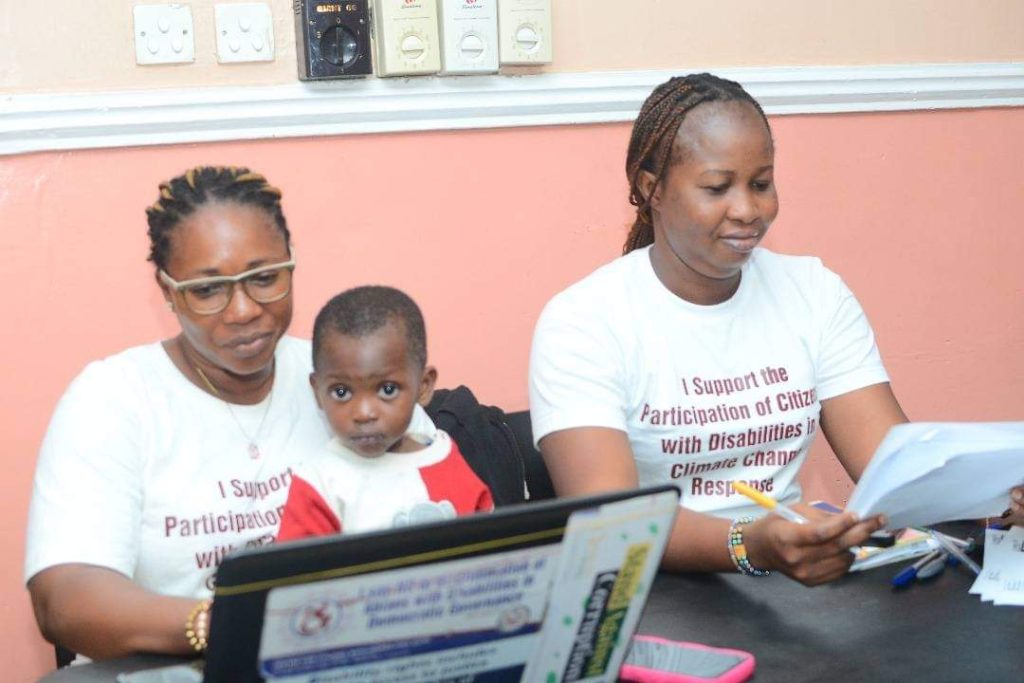
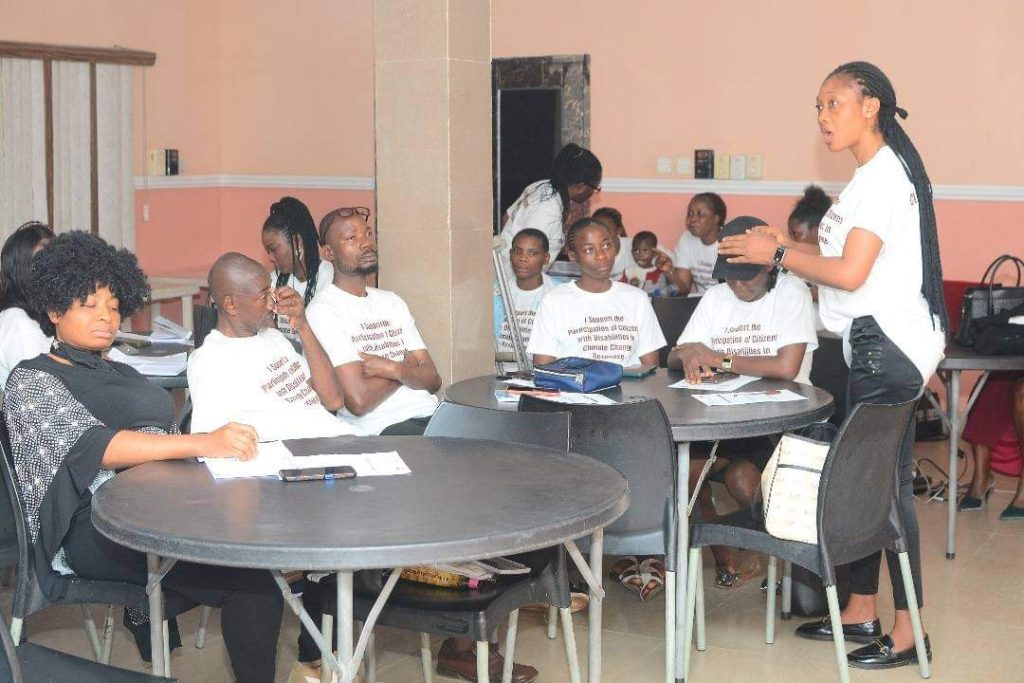
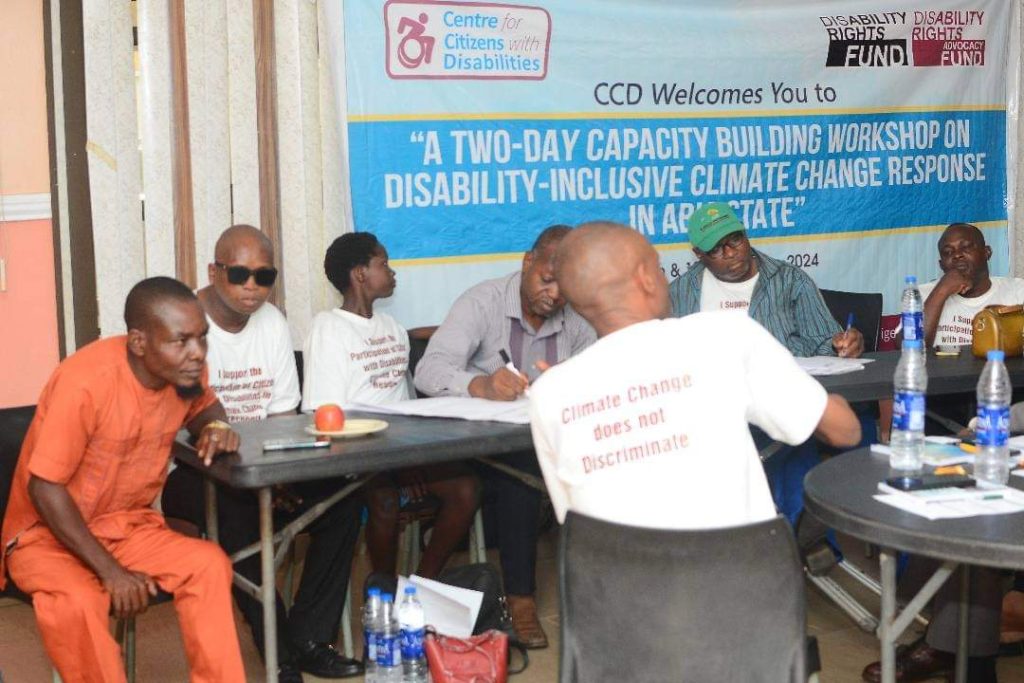
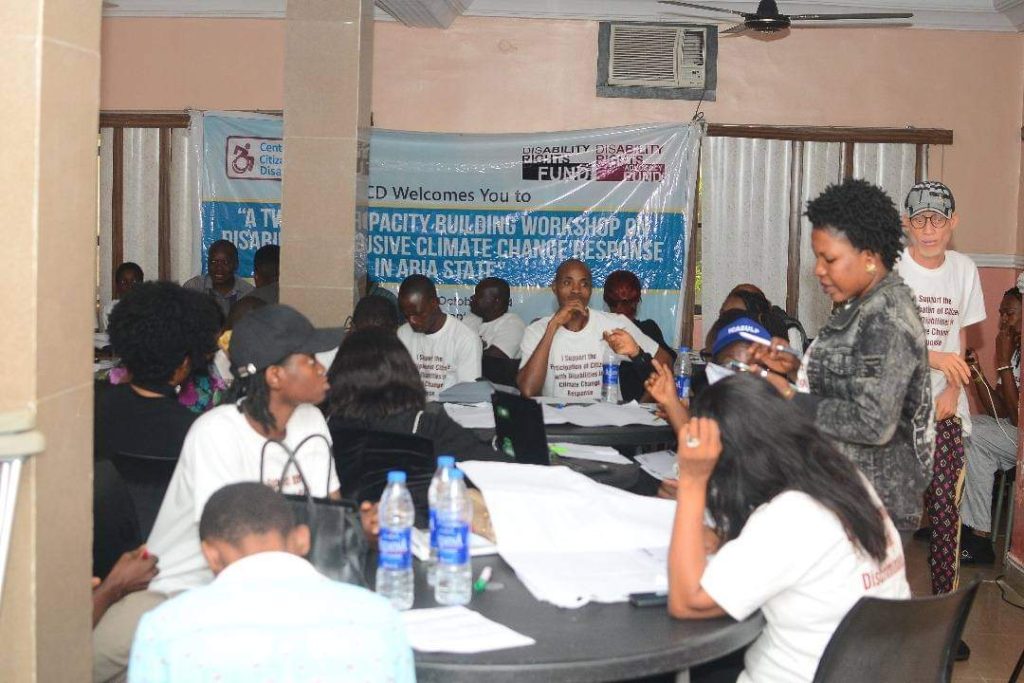
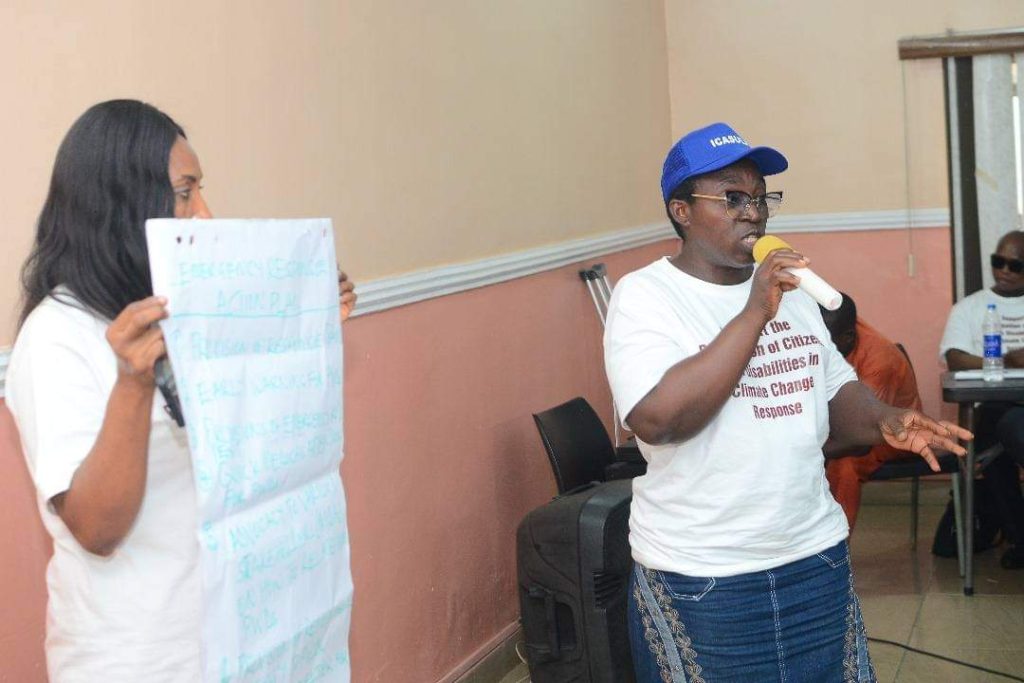
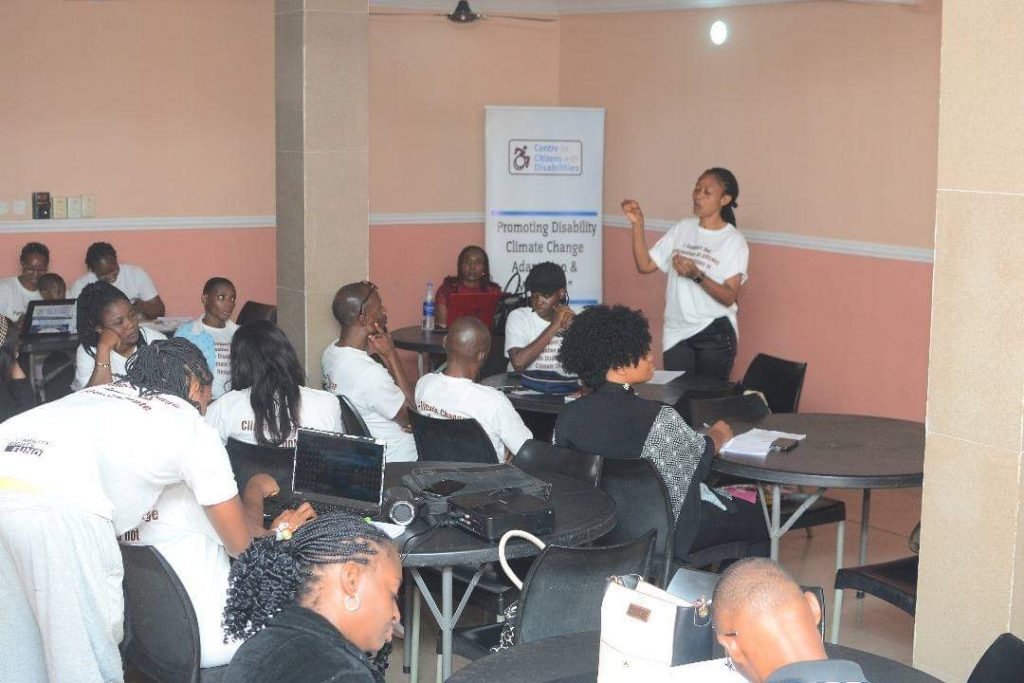
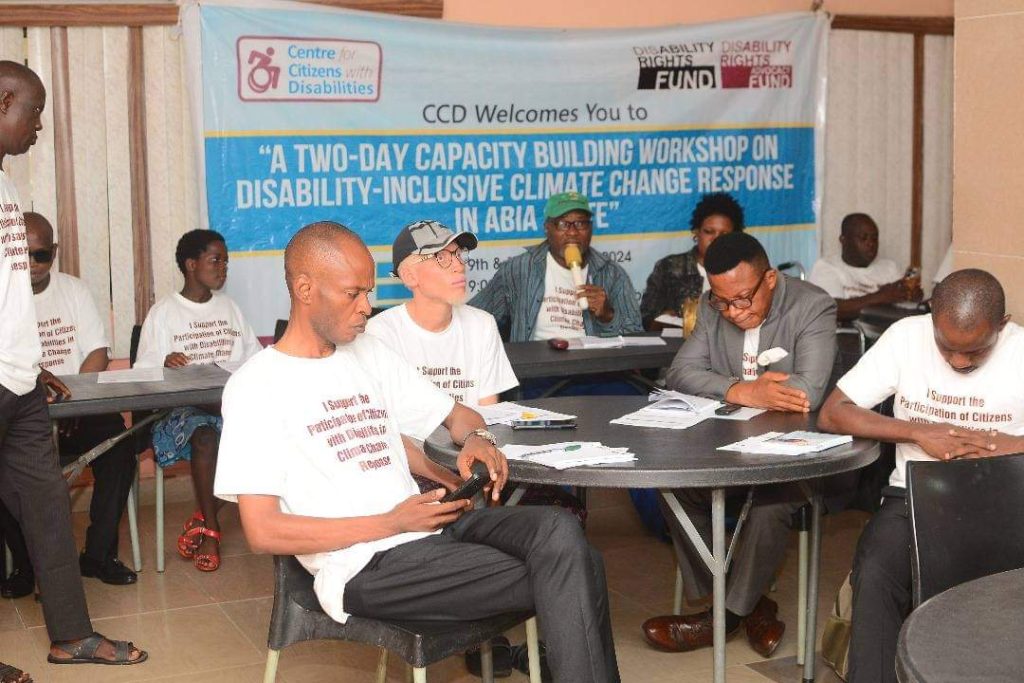
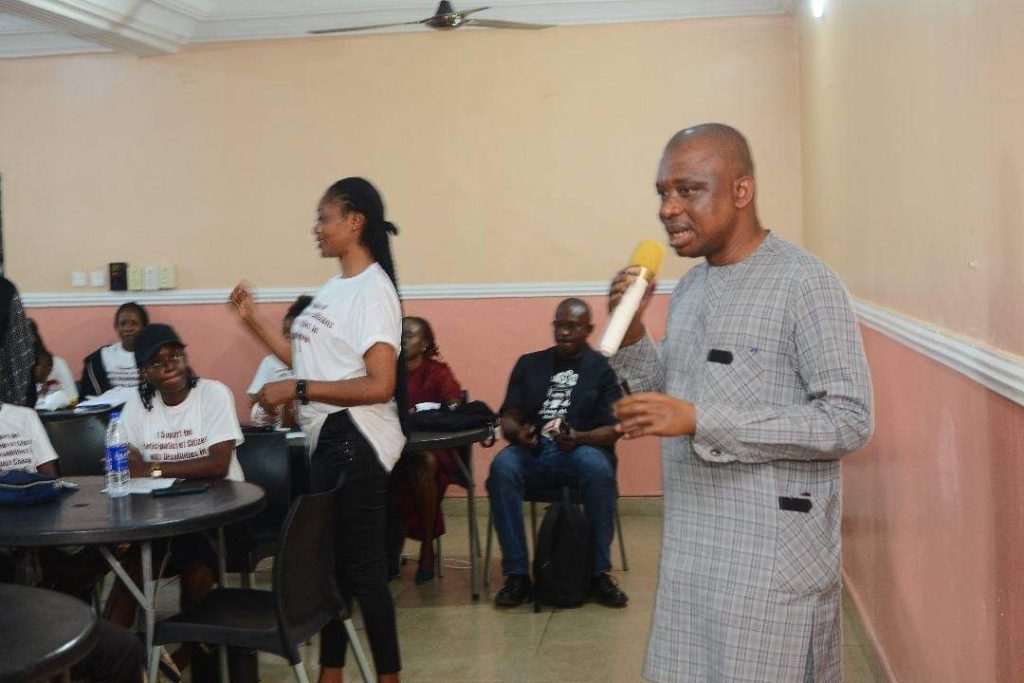
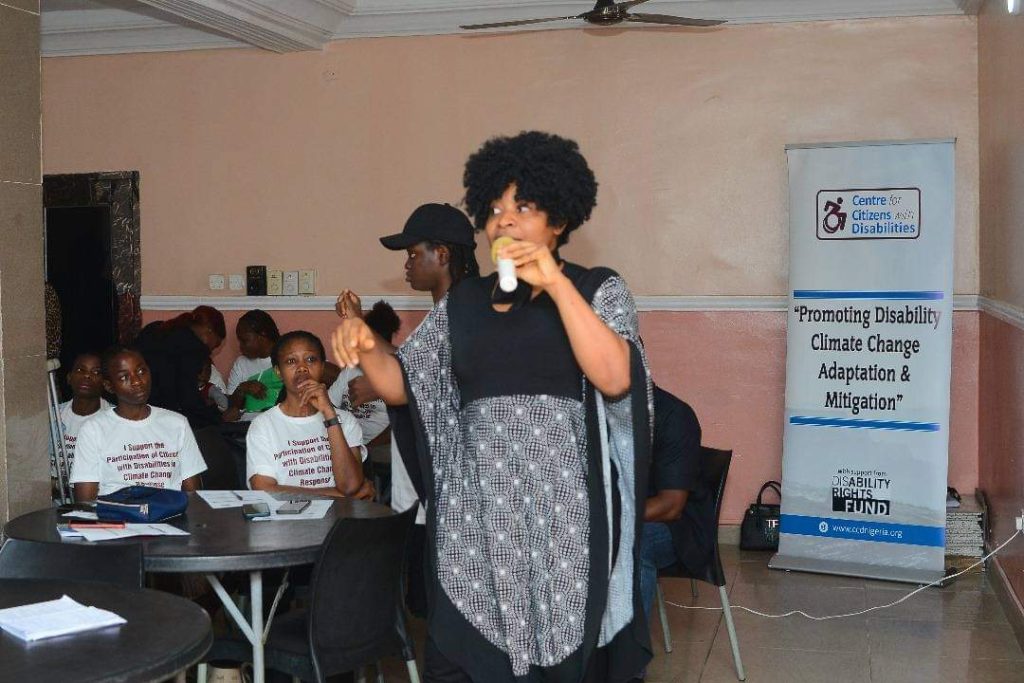
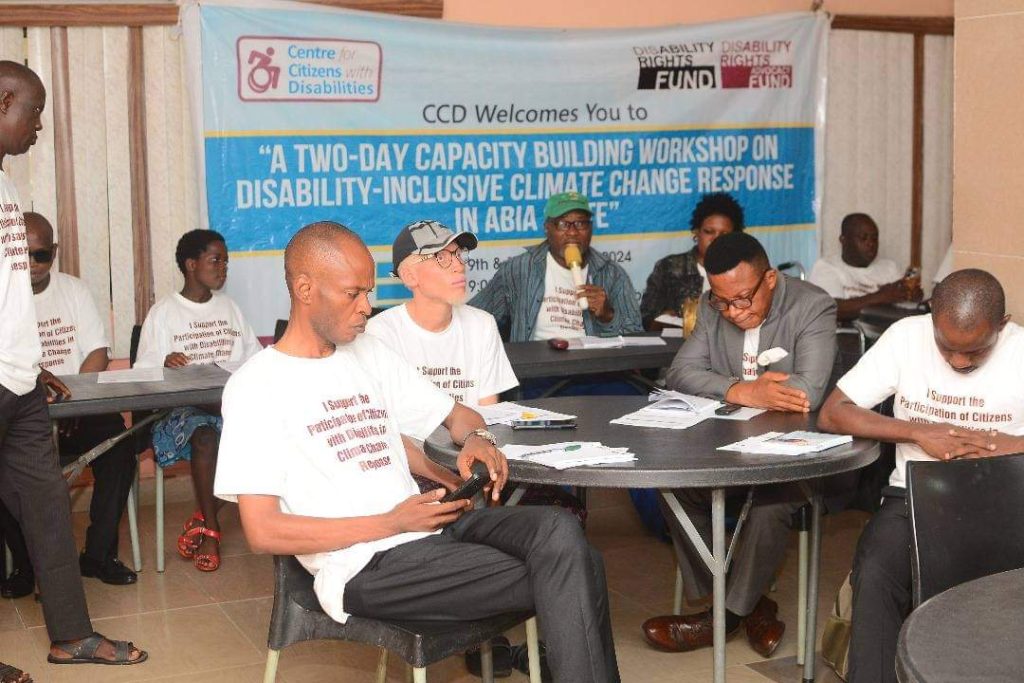
A key component of the second day’s activities was the breakout session, where participants were divided into groups to brainstorm innovative, disability-inclusive action plans for various sectors. These sectors included agriculture, health, transportation, and technology—all of which are crucial for climate resilience in the state. Participants worked collaboratively to develop strategies that can enhance climate adaptation efforts while promoting the well-being and inclusion of PWDs in the community.
The program, successfully implemented by CCD with support from the Disability Rights Fund, concluded with participants expressing a renewed sense of purpose and commitment to ensuring that PWDs are not left behind in climate action efforts. The workshop was hailed as a critical step towards building a more inclusive, sustainable future for all residents of Abia State.
By bringing together government officials, CSOs, and the disability community, the CCD has set a precedent for the kind of inclusive climate change response needed across Nigeria. The event underscored the importance of intersectional approaches to climate change and showcased how empowering PWDs with knowledge and resources can contribute to more resilient communities.
This workshop has sparked hope that Abia State can become a model for disability-inclusive governance, with all sectors of society working together to mitigate the impacts of climate change while fostering an environment where PWDs are empowered to contribute to solutions. As the world continues to grapple with the growing threat of climate change, initiatives like this provide a crucial blueprint for inclusive, community-driven action.

